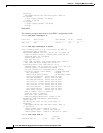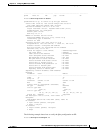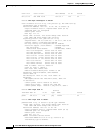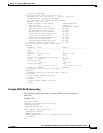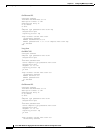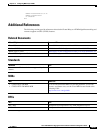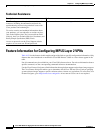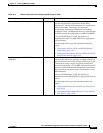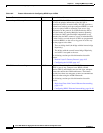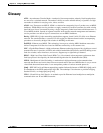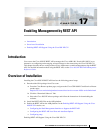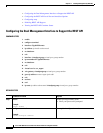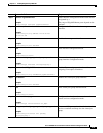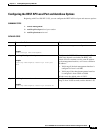
16-72
Cisco ASR 1000 Series Aggregation Services Routers Software Configuration Guide
OL-16506-17
Chapter 16 Configuring MPLS Layer 2 VPNs
Feature Information for Configuring MPLS Layer 2 VPNs
Reverse Layer 2 Gateway Protocol 3.8.0S Reverse L2GP (R-L2GP) is a variation of L2GP. In case of
R-L2GP, the pseudo information of the R-L2GP is
transmitted by nPEs, instead of uPEs. R-L2GP provides a
mechanism to send out static preconfigured BPDUs on each
ring access port of nPEs to stimulate a per-access ring
instantiation of the protocol. R-L2GP enables the PEs to
avoid the burden of running Multiple-instance Spanning
Tree Protocol (MST) when multiple independent access
networks that run MST connect to a pair of redundant PEs.
In order for this to work, the pair of nPEs are programmed
to send out BPDUs on the access ring ports in such a way
that they appear to be either:
• The root bridge itself (the bridge with the lowest bridge
id/priority).
• The bridge with the second lowest bridge ID/priority,
and with a 0 cost path to the root.
The following sections provide information about this
feature:
• Reverse Layer 2 Gateway Protocol, page 16-5
• Configuring the R-L2GP, page 16-7
HDLC-Ethernet Interworking 3.13.0S High-Level Data Link Control (HDLC)-Ethernet over
MPLS is part of Any Transport over MPLS (AToM)
solution. HDLC and Ethernet are two link-layer transport
systems that utilize the AToM architecture. The feature
describes how these two transport system can communicate
with each other using the AToM framework.
The following sections provide information about this
feature:
• High-Level Data Link Control-Ethernet Interworking,
page 16-39
• Configuring HDLC-Ethernet Interworking, page 16-40
Table 16-2 Feature Information for Configuring MPLS Layer 2 VPNs
Feature Name Releases Feature Information



